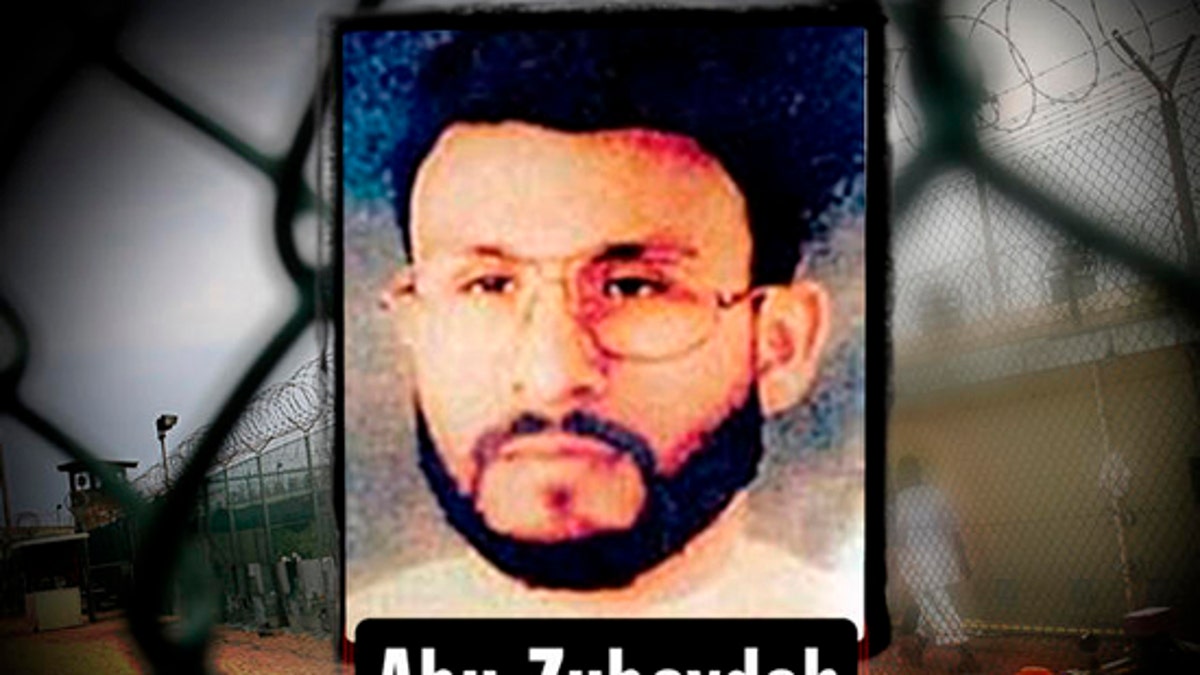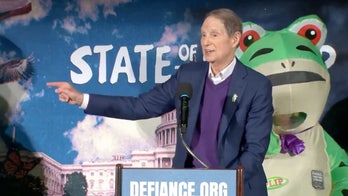
Abu Zubaydah framed headshot, image provided by US Central Command, over Guantanamo Bay US Naval Base, Cuba. (AP) (AP2007)
No one will be charged in the destruction of CIA interrogation tapes, a Justice Department official confirmed to Fox News Tuesday.
The tapes reportedly showed the interrogation of two Al Qaeda operatives, Abu Zubaydah and Abd al-Nashiri, in 2002, according to the New York Times. They were destroyed in 2005.
The official says that another part of the criminal investigation is continuing into whether interrogators went beyond the legal guidance given them on treatment of the suspects.
Jose Rodriguez, formerly the agency's top clandestine officer, worried the 92 tapes would be "devastating" to the CIA if they ever surfaced. He approved the destruction of the tapes.
Rodriguez's order was at odds with years of directives from CIA lawyers and the White House.
The Justice Department decision "is the right decision because of the facts and the law," a lawyer for Rodriguez, Robert Bennett, said in a statement.
Bennett called Rodriguez "an American hero, a true patriot who only wanted to protect his people and his country."
Assistant U.S. Attorney John Durham has been investigating the destruction of the videotapes since January 2008.
A team of prosecutors and FBI agents led by Durham has conducted an exhaustive investigation into the matter, said Matthew Miller, director of the Justice Department's office of public affairs.
"As a result of that investigation, Mr. Durham has concluded that he will not pursue criminal charges for the destruction of the interrogation videotapes," Miller said.
CIA officers began videotaping to show that Zubaydah was brought to a secret CIA prison in Thailand already wounded from a firefight and to prove that interrogators followed broad new rules Washington had laid out.
Almost as soon as taping began, top officials at the agency's headquarters near Washington began discussing whether to destroy the tapes, according to current and former U.S. officials and others close to the investigation.
Many dozens of CIA officers and contractors cycled in and out of Thailand to help with the questioning. If those videos ever surfaced, officials feared, nearly all those people could be identified.
During the investigation, agency lawyers were forced to turn over long lists of documents, including classified cables from around the world. Former CIA Director Porter Goss was summoned before a grand jury, as were the agency's former top lawyer and its current station chief in London.
The Associated Press contributed to this report.












































